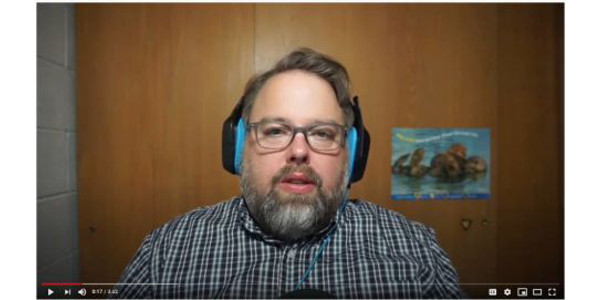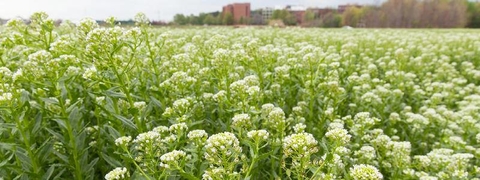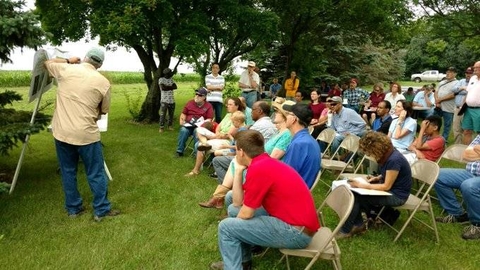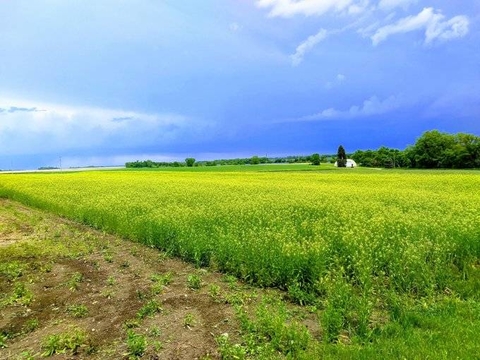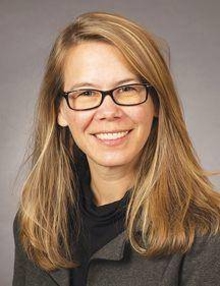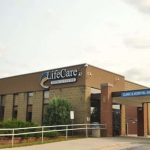New oilseed crops making their way onto fields, into supply chain, and onto the dinner table
MINNEAPOLIS — Two new winter hardy annual oilseed crops – winter camelina and pennycress – are making their way onto fields, into the supply chain, and onto the dinner table in Minnesota, thanks to collaborative efforts by the University of Minnesota Extension Regional Sustainable Development Partnerships (RSDP) and The Forever Green Initiative.
Applied researchers are developing these cover crops to protect water, soil, pollinator habitat and the climate, while spurring innovation, new economic opportunities for growers and new products for consumers such as edible oils, protein, feed applications, bioplastics and biofuel.
Three interactive Winter Oilseed Virtual Field Days hosted in summer 2020 provided accessible and engaging ways to learn about the rapid advances made in these crops and the partnerships across the supply chain making those advances possible.
“In-person and field days are traditionally our main conduit and centerpiece for presenting research, getting questions answered, understanding where our public dollars are going, and providing the public and potential collaborators opportunities to participate and partner,” explained Connie Carlson, co-director of RSDP’s statewide Sustainable Agriculture and Food Systems program and market development lead with The Forever Green Initiative.
A testament to partnership
The oilseed team is a diverse group, bringing together a range of skills, perspectives and expertise, to share their cutting-edge work on these new, multipurpose cover crops.
“Many of the researchers working on these annual field days have been working together for a long time, and have a deep and trusting work relationship,” Carlson said.
“With Forever Green, you’re spanning domains,” said M. Scott (Scotty) Wells, Extension agronomist and associate professor in the Department of Agronomy and Plant Genetics. “It’s not easy work. It’s a testament to [Forever Green co-directors] Don Wyse and Nick Jordan, in bringing 20 years of work together. To quote Pepsi, ‘There was not another platform like Forever Green.’ So we’re seeing how to capitalize on this structure and support it.” PepsiCo formed a research partnership with Forever Green to invest, collaborate and support ongoing product development. Wyse and Jordan are faculty in the Department of Agronomy and Plant Genetics in the College of Food, Agricultural and Natural Resource Sciences (CFANS).
Collaborators from across the state both within and outside the University of Minnesota have engaged in this work.
“This project shows the depth and breadth of the oilseed team’s work, and how holistic this work is,” noted collaborator and James Beard award-winning cookbook author Beth Dooley, who has championed the oilseed team’s efforts and engaged wide audiences in creating sustainable, local food systems.
“So often, this work is perceived in silos,” Dooley said, “but the ways it is being communicated here, it can really help people understand the issues from seed to table.”
Producing an engaging virtual field day experience
In previous years, the oilseed team hosted hands-on field days in Waseca to showcase and engage diverse audiences in their work. These events typically hosted between 50 and 75 growers, processors, researchers, educators, legislators and industry representatives and have been an effective way to share the message and excitement of Forever Green research and innovation.
Recognizing a need to pivot their annual outreach efforts in the face of COVID-19, the Forever Green oilseed team found creative ways to navigate the challenge and quickly adapt their programming to a virtual format.
“It was important to admit we needed help. Beth Dooley knew and connected us with professionals at Blue Earth Pictures to help produce quality presentations,” Wells explained. “So with professional help directing, filming and editing, the oilseed team then worked around the clock to get a handle on the technology and ultimately create the content from the arc and big picture idea we had.”
From there, the final virtual field day programming came together into a series of three interactive sessions, each including pre-recorded presentations by oilseed team collaborators, followed by a live question and answer period with audience members:
- Session One: “Environmental benefits, breeding and agronomics”
- Session Two: “Food science and end use applications; cooking demo with Beth Dooley”
- Session Three: “Supply chain and market development; industry interest”
These sessions showcased research, processing, end uses and industry interest in winter camelina and pennycress, using a variety of formats to break up the experience. Over 200 participants viewed the webinars as they were live-streamed with attendance spanning the state, region and globe. Interest from those unable to attend has continued, with the team seeing daily visits to The Forever Green YouTube channel.
The team enlisted Dooley and Wells to provide cooking demonstrations and recipe ideas – including stir fry and fried chicken – that highlight the versatility of camelina oil.
“I love camelina oil. It’s a wonderful all-purpose oil with herbal notes and a little pepper,” explained Dooley in a follow-up interview, noting both flavor and nutrition benefits of this new product. “Unlike olive oil, you can get it really hot, so it’s great for frying.”
“For me, there’s this personal connection to fried chicken,” Wells noted. “Beth and I came up with this plan — we’re often texting about our cooking ideas and inspirations, and then my wife helped record. We had to get creative.”
What’s on the horizon
With this year’s field days behind them, the oilseeds team looks to the future, planning next steps for getting these crops adopted into our agricultural and food systems broadly.
“With the video webinar work we’ve now done, we have new tools for sharing our work and reaching new audiences,” Carlson noted about the oilseed team’s learning this spring. “I would never ever replace the experience of the on-the-ground field days, but the restrictions placed on us by COVID-19 forced us to get creative and use different tools. Now, we know what we can do, that we’re able to reach more people across different industries, and I’m excited about applying what we’ve learned.”
The team’s charge to share resources and spread the word about the value of these oilseed crops far and wide across Minnesota and beyond will continue, along with the potential for broad social, environmental and economic impacts.
“The work the University is doing on these crops has the potential to transform the whole agricultural system, changing how we think about and relate to our food for the better, and I hope it does,” said Dooley.
We hope so, too.
Last modified: 08/12/2020

